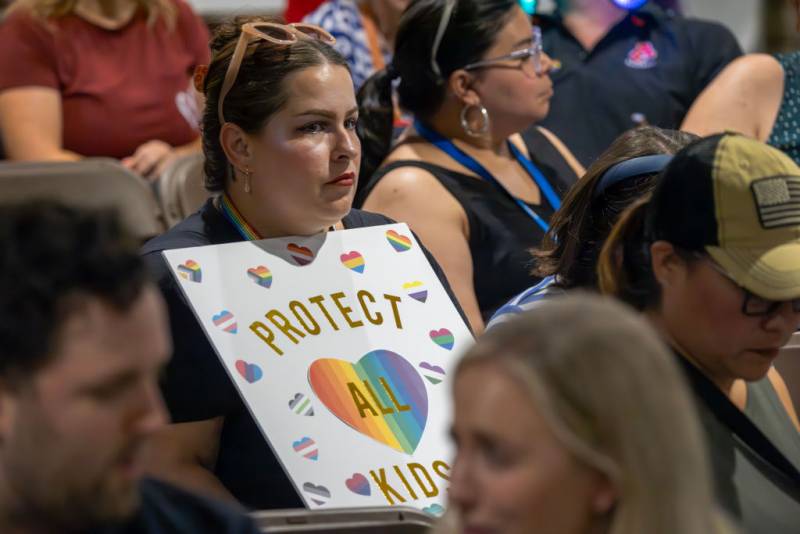“This critical legislation strengthens protections for LGBTQ+ youth against forced outing policies, provides resources for parents and families of LGBTQ+ students to support them as they have conversations on their terms, and creates critical safeguards to prevent retaliation against teachers and school staff who foster a safe and supportive school environment for all students,” Tony Hoang, executive director of LGBTQ+ advocacy group Equality California, said in a statement.
However, some conservative groups, including the California Family Council, said the new law violates parents’ rights.
“This bill undermines their fundamental role and places boys and girls in potential jeopardy,” Jonathan Keller, the council’s president, said in a statement. “Moms and dads have both a constitutional and divine mandate to guide and protect their kids, and AB 1955 egregiously violates this sacred trust.”
The new law comes after several California school districts passed policies requiring parents to be notified if a child requests to change their gender identification. That led to pushback by Democratic state officials, who say students have a right to privacy. Nationwide, lawmakers, families and advocates have been debating the rights of local school districts, parents and LGBTQ+ students.
At least six states have requirements that schools notify parents when minors disclose that they are transgender or ask to be referred to with a different pronoun, according to Associated Press reporting: Alabama, Arkansas, Indiana, North Carolina, South Carolina and Tennessee. Virginia asked school boards to adopt similar policies, but it has no law.
Arizona and Idaho also require schools to provide certain information to parents but do not specify gender expression or sexual orientation.

